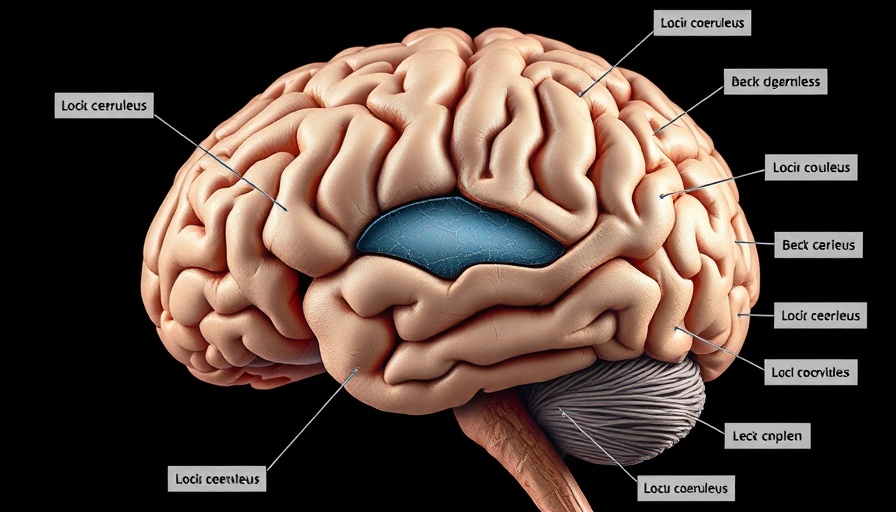
Unpacking the Memory Puzzle: Understanding the Locus Coeruleus
Scientists have made a breakthrough in understanding how a small region of the brain called the locus coeruleus is essential in helping us form distinct memories. This area, known for its role in the body's arousal system, serves as a critical marker for when certain events occur in succession. As experiences unfold, our brains need to distinguish between continuous memories and separate events, much like grammar punctuates our sentences. This research, led by a team from the University of California, Los Angeles (UCLA), demonstrates that the locus coeruleus acts like a memory reset button, highlighting the profound organizational nature of our memory formation processes.
The Science Behind Memory Formation
In a study published in the journal Neuron, UCLA psychology professor David Clewett and his colleagues investigated how the brain transitions from one memory to another. By studying the reactions of 32 volunteers in an MRI scanner while exposed to various auditory stimuli, they identified how shifts in context—like changing tones in ear—impact memory separation. While our experiences may seem fluid, the way we remember them relies on event boundaries that signal the end of one memory and the beginning of another.
Why This Research Matters: Future Implications
This research has far-reaching implications not only for our understanding of memory but also for practical applications in mental health and wellness. As we grapple with conditions like PTSD and other memory-related disorders, insights into how the brain delineates memories can pave the way for new therapeutic strategies. Mental wellness initiatives increasingly focus on the interconnectedness of mental and physical health; therefore, understanding cognitive processes like memory could influence holistic approaches to health.
Memory and Its Role in Health and Wellness
Memory serves as a cornerstone for our wellness. Concepts like *health and wellness* often depend on our ability to recall past experiences, learn from mistakes, and make informed decisions. Maintaining optimal health goes beyond physical fitness and diet; emotional and cognitive health play critical roles too. Understanding how our memory works helps us engage with the broader health and wellness conversations in our communities.
Emerging Research in Memory and Mental Health
Further exploration into this tiny brain region and its broader connections could unlock new avenues in both psychological therapies and community wellness practices. As researchers delve deeper, studies may increasingly reveal how cognitive functions and emotional responses are intertwined, paving the way for programs in community health—especially important in urban areas like San Antonio, where health and wellness initiatives are continuously evolving.
Actionable Insights for Personal Growth
Understanding that our memories are compartmentalized can empower individuals to work on their mental fortitude. Incorporating mindfulness practices, memory enhancement exercises, and even memory-focused *health and wellness events* could immensely benefit those seeking to bolster their cognitive skills. Engaging in activities that stimulate cognitive function can lead to improved mental health and an overall better quality of life.
Conclusion: Building a Healthier Future Through Memory Awareness
As we learn more about the intricate processes behind memory, it’s essential to incorporate these insights into our daily lives. Consider exploring community wellness programs in your area, enhancing your understanding of health routines, and participating in discussions about mental health. This knowledge not only empowers us but also enriches our shared conversations about the holistic nature of health and wellness.
 Add Element
Add Element  Add Row
Add Row 



 Add Row
Add Row  Add
Add 


Write A Comment